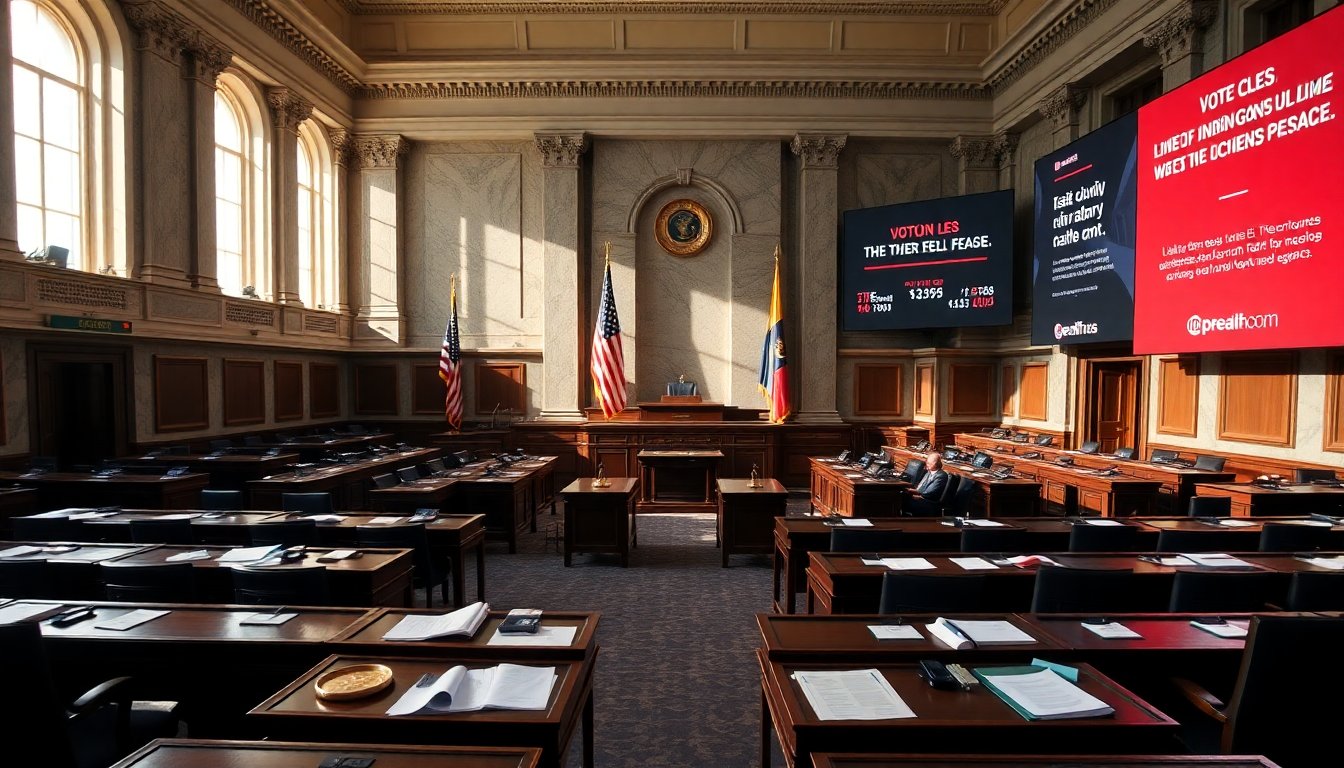Table of Contents
In a significant legislative move, the Senate voted against a resolution aimed at restricting the Trump administration’s capacity to conduct military actions in Venezuela. The resolution sought to mandate explicit congressional approval for any military engagement in the country. This decision underscores the ongoing debate within the U.S. government regarding military intervention and its potential impact on foreign relations.
Details of the resolution and the vote
The measure failed to pass with a narrow vote of 49 in favor and 51 against, requiring a simple majority to advance. Notably, only two Republicans, Senator Lisa Murkowski from Alaska and Senator Rand Paul from Kentucky, supported the resolution alongside the Democrats. The rest of the Republican senators, along with all Democrats except for those two, opposed the measure, highlighting a clear partisan divide on military engagement policy.
Concerns raised by congressional members
Senator Tim Kaine led the initiative, stressing that Congress must retain its constitutional authority over war decisions. He indicated that if there is a real belief in the need for military action against drug trafficking or Venezuela, lawmakers should engage in open debate and vote on the matter. Kaine’s comments highlight the critical role of legislative oversight in military operations, which is essential to the democratic process in the United States.
Military operations in the Caribbean
Following a Senate vote, Defense Secretary Pete Hegseth announced that military strikes targeting vessels suspected of drug trafficking in the Caribbean will continue. Since September, the United States has carried out at least 17 strikes, resulting in approximately 70 fatalities. This ongoing military action has raised significant concerns among lawmakers about the potential escalation of U.S. involvement in Venezuela.
Administration’s stance on military engagement
President Trump has expressed a readiness to bypass congressional approval for additional military operations. He has stated that his administration will take decisive action against individuals he alleges are responsible for drug trafficking into the United States. This declaration has ignited a discussion regarding the legal and ethical ramifications of such unilateral military decisions. Critics contend that the absence of appropriate checks and balances heightens the risk of military power being misused, potentially resulting in unforeseen consequences.
Implications of the Senate’s decision
The Senate’s recent decision not only mirrors the prevailing political climate but also prompts a closer examination of U.S. military policy in Latin America. The War Powers Resolution of 1973 aimed to limit presidential military engagement without congressional approval. However, recent actions indicate a shift towards unilateral military involvement. This trend raises significant concerns regarding the core principles of American governance.
Bipartisan concerns about military escalation
While most Republicans opposed the resolution, some party members are expressing concerns about the current military strategy. Senator Todd Young articulated his unease, noting that, although he disagreed with the resolution, he is troubled by military strikes conducted without congressional approval. This perspective aligns with a significant segment of the American public, who advocate for reduced military involvement in foreign conflicts.
The Senate’s rejection of the resolution underscores the complexities surrounding U.S. military operations in Venezuela and the Caribbean. As military actions persist, the debate over the appropriate balance of power between the executive and legislative branches remains a pivotal issue in American politics.


